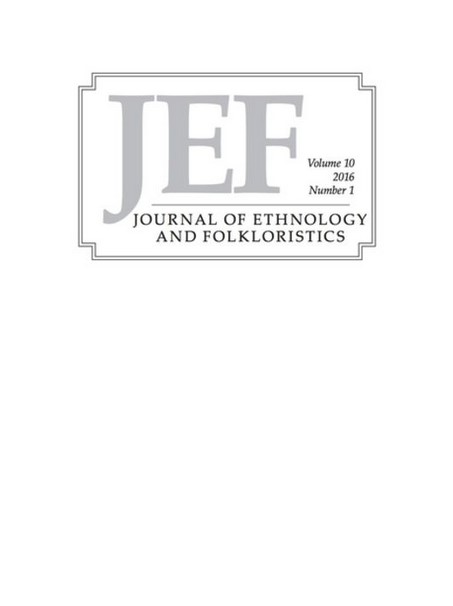“Kox Kwai Kauv Kox Kwai”: Ecopoetic Symbolisation in Pgaz K’Nyau Oral Poetry
“Kox Kwai Kauv Kox Kwai”: Ecopoetic Symbolisation in Pgaz K’Nyau Oral Poetry
Author(s): Sitthichok Samachitloed, Ignasi Ribó, Chanakan Satrakom, Prapawarin Noopan, Papawarin KotchamitSubject(s): Cultural history, Semiotics / Semiology, Customs / Folklore, Poetry, Oral history, Translation Studies
Published by: Tartu Ülikool, Eesti Rahva Muuseum, Eesti Kirjandusmuuseum
Keywords: oral tradition; ethnopoetics; semiotics; ecocriticism; literary devices;
Summary/Abstract: This article presents the transcription, translation, and annotation of an original performance of hta, a traditional form of oral poetry in Sgaw, the language of the Pgaz K’Nyau (Karen) people of northern Thailand. This performance was recorded during ethnopoetic fieldwork carried out in two villages in the province of Chiang Rai. The hta is then analysed to understand the operations of ecopoetic symbolisation that bring particular nonhumans into the domain of human language. This analysis reveals that a metaphorical mode of symbolisation is extensively used throughout the hta to overcome human/nonhuman allotopies by means of implicit or explicit semic transformations. This seems to indicate that a naturalistic mode of identification underlies the whole poem, a conclusion that calls into question the essentialising and mythifying portrayal of the Pgaz K’Nyau as pre-modern and animistic indigenous stewards.
Journal: Journal of Ethnology and Folkloristics
- Issue Year: XV/2021
- Issue No: 1
- Page Range: 103-139
- Page Count: 37
- Language: English

